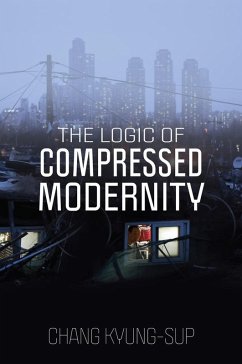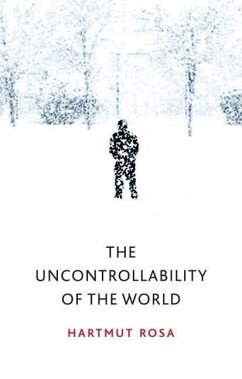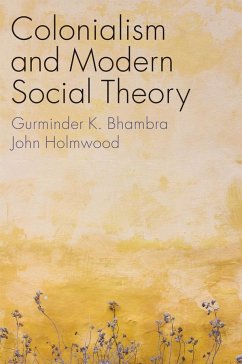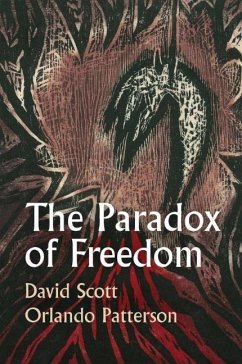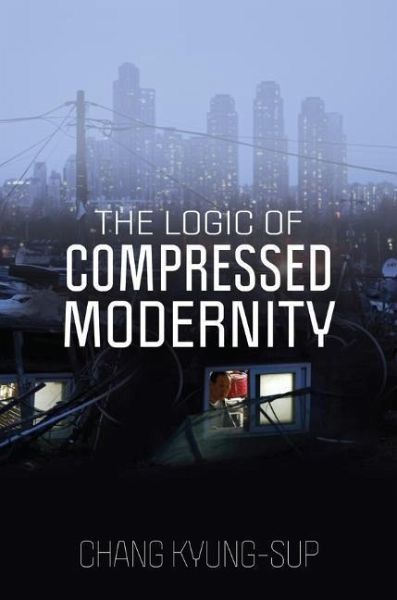
The Logic of Compressed Modernity
Versandkostenfrei!
Versandfertig in 2-4 Wochen
61,99 €
inkl. MwSt.
Weitere Ausgaben:

PAYBACK Punkte
31 °P sammeln!
Most theories of modernity are based, explicitly or implicitly, on the development of Western societies since the late medieval period, but these theories are of limited value for understanding the development of societies in Asia and other parts of the world, where the process of modernization took place under different circumstances and often in a rapid and highly compressed fashion - not over centuries but in decades. Asian societies have been propelled into modernity too, but theirs is a compressed modernity, which displays very different traits.In this important book, Chang Kyung-Sup prov...
Most theories of modernity are based, explicitly or implicitly, on the development of Western societies since the late medieval period, but these theories are of limited value for understanding the development of societies in Asia and other parts of the world, where the process of modernization took place under different circumstances and often in a rapid and highly compressed fashion - not over centuries but in decades. Asian societies have been propelled into modernity too, but theirs is a compressed modernity, which displays very different traits.
In this important book, Chang Kyung-Sup provides a systematic account of this compressed modernity and uses it to analyse the extreme social changes, complexities and imbalances found in South Korea and other East Asian societies. While these changes enabled South Korea to modernize very quickly and achieve high levels of economic growth, they also created a society that is haunted by various developmental and civilizational costs, such as endemic generational conflicts, overloaded family responsibilities and exceptionally high suicide rates. As with other societies that have experienced compressed modernity, the South Korean "miracle" is replete with extreme and contradictory social traits.
This pioneering work of the nature and consequences of compressed modernity will be of great interest to students and scholars of sociology, politics and development studies, as well as anyone interested in South Korea, Asia and postcolonial societies.
In this important book, Chang Kyung-Sup provides a systematic account of this compressed modernity and uses it to analyse the extreme social changes, complexities and imbalances found in South Korea and other East Asian societies. While these changes enabled South Korea to modernize very quickly and achieve high levels of economic growth, they also created a society that is haunted by various developmental and civilizational costs, such as endemic generational conflicts, overloaded family responsibilities and exceptionally high suicide rates. As with other societies that have experienced compressed modernity, the South Korean "miracle" is replete with extreme and contradictory social traits.
This pioneering work of the nature and consequences of compressed modernity will be of great interest to students and scholars of sociology, politics and development studies, as well as anyone interested in South Korea, Asia and postcolonial societies.




